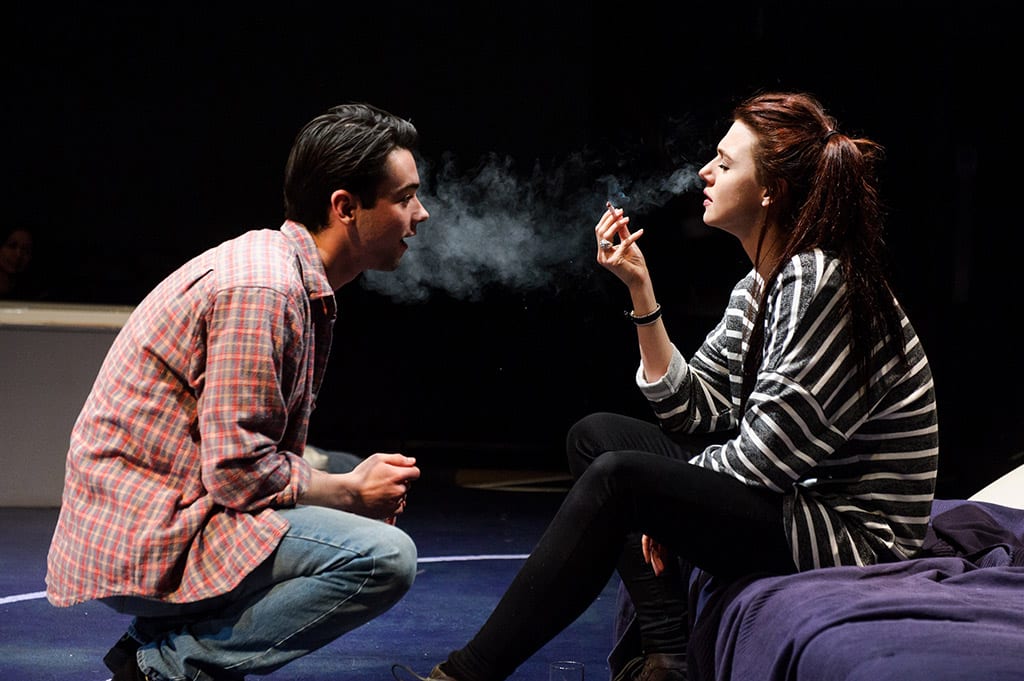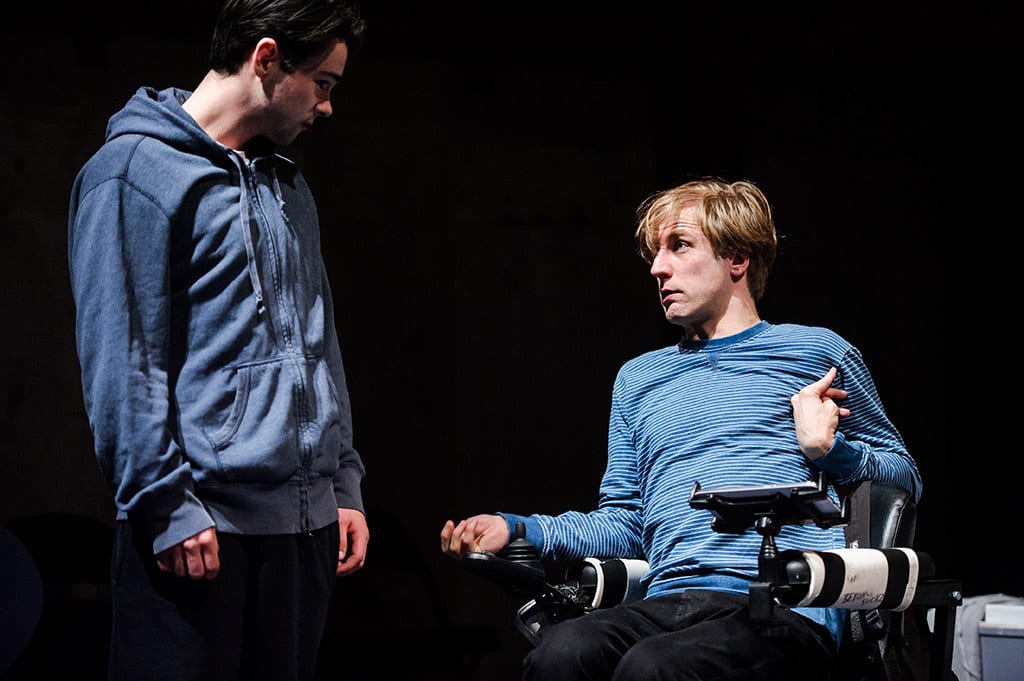The intimate Park Theatre provides the stage for the sixth collaboration between playwright, Brad Fraser and director, Braham Murray. Renowned for plays such as Unidentified Human Remains, Brad Fraser consistently confronts the social and domestic issues of contemporary Canadian life. Kill Me Now follows this theme, combining humour with harsh realism as it explores the ways in which the family unit functions in response to the pressures raised when one of its members is severely disabled.
The play excels in its presentation of those suffering from severe disabilities. Fraser describes how the issue is one that is very personal; the impetus for the play is partly inspired by his relationship with a disabled member of his family. Fraser writes:
‘All too often disabled or differently abled people are treated like some sort of visiting angel or long suffering saint when my experience tells me this is quite opposite to the reality and I wanted to explore that.’
Thus, the depiction of the Sturdy family’s disabled son, Joey Sturdy (Oliver Gomm) combines elements of tragedy and humour. The play broadens the perceptions of disabled people which are often underlined with a sense of pity; Joey’s character is a combination of inherent tragedy but also bawdy humour. Emotionally, it aligns Joey with the millions of other typical teenage boys: eager to socialise, smoke marijuana, and of course, a growing fascination with the opposite gender. Gomm’s performance throughout the play is convincing and captivating, exploring Fraser’s point.
Furthermore, the relationship between Joey and his father, Jake (Greg Wise) reinforces the play as a tragicomedy. Wise’s portrayal of the father figure evokes a feeling of omnibenevolent paternalism, whilst also alluding to the underlying frailty which accompanies fatherhood. The production is Wise’s first London performance for seventeen years, and with Gomm, marvels throughout.
The simplistic stage incorporates just a handful of props, including a bed, a sink and a bath tub. These props function as increasingly effective symbols depicting the pressures exerted on the domestic sphere. When the scene switches, from the Sturdy’s house to the house of Jake’s lover, Robyn, or to a hospital ward, these domestic props remain present, thus reinforcing the impact disabilities exert on life at home.
However, often the play switches scenes prematurely. Especially in the first half, the theatre’s lights are often dimmed a little too soon indicating a change in scene, as it thrusts between the houses of the Sturdy’s and Robyn. Whilst Jake and Joey’s father-and-son relationship is explored fully in the play, the same may not be said for the pair’s relationship towards female characters. The scenes depicting Jake and Robyn’s love affair are brief, and ultimately, seems to lack some substance. Similarly, a greater focus on the impact the family situation imprints upon the eternally helpful aunt, Twyla Sturdy (Anna Wilson-Jones) would benefit the play in confronting the impact that disability poses upon them all.
Nevertheless, the dramatic twist is heart-breaking. It offers a reminder of the fragility of human life, and the mutability of the family structures employed as a safeguard against its toils. Nearing the end of the play, Jake Sturdy desperately exclaims, ‘It’s not fair! It’s not fucking fair!’ This is a feeling reflected by the audience, which demonstrates the emotional power of the production. Kill Me Now is thought-provoking, and makes incisive points about disabilities, family structures and the individual’s autonomy over one’s own life. Whilst at times a little thin on the ground, the collaboration between Fraser and Murray is moving and proves for a quiet and contemplative tube journey home.




